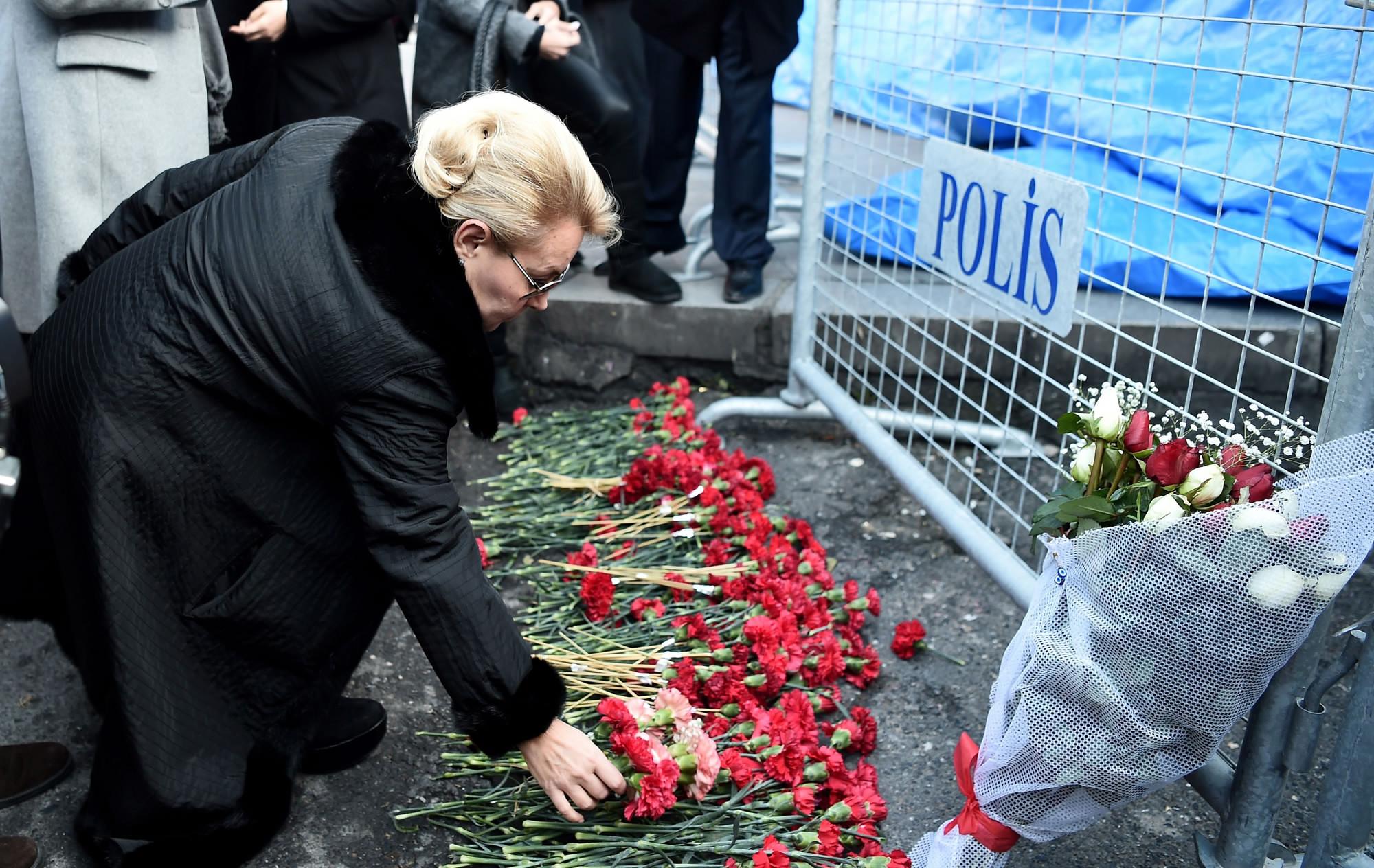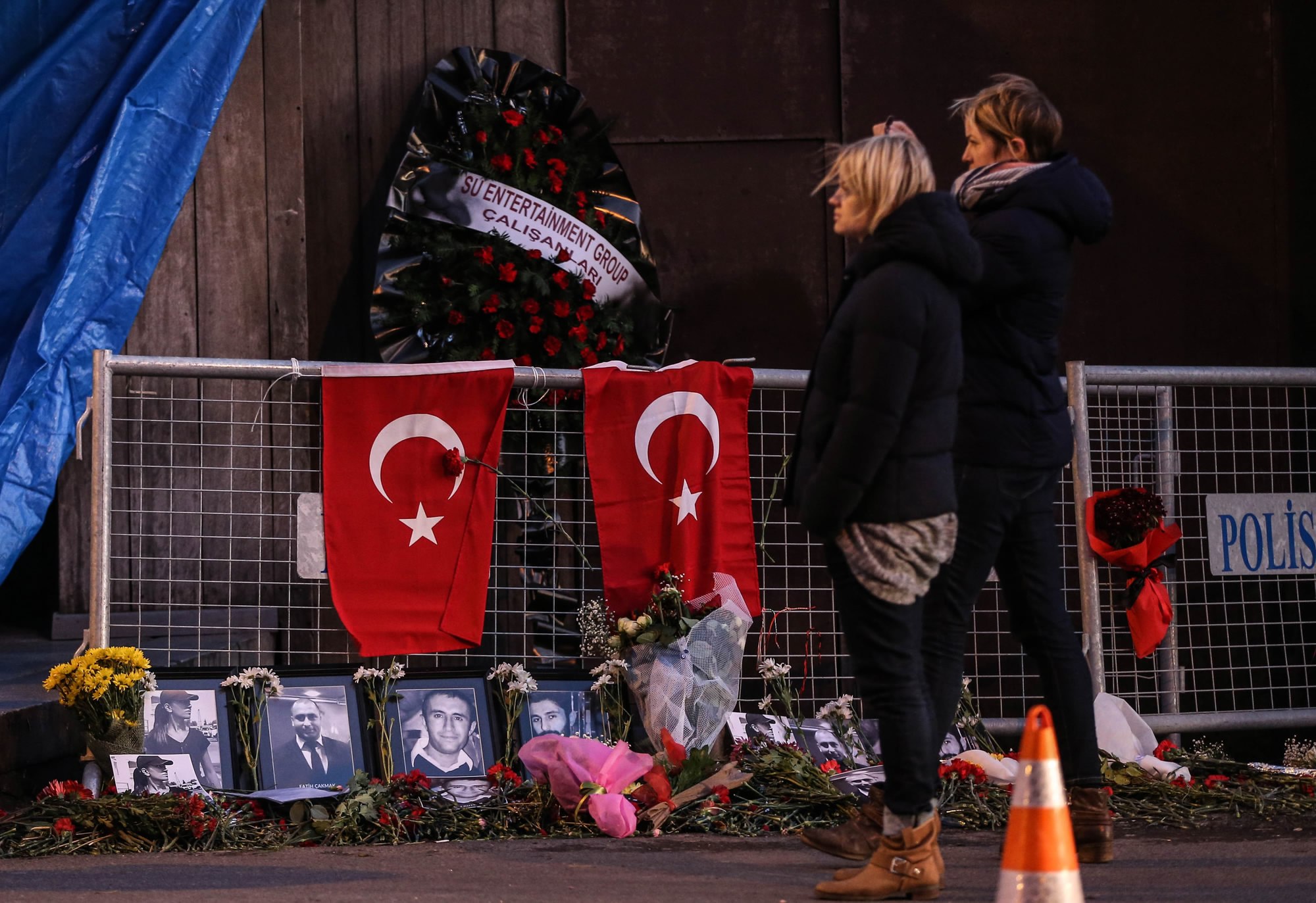By Hichem Karoui
As shocking as it was, the Turkish security services should hardly have been surprised by the attack of the Reina club, aware as they are that their country has been a terrorist target for some time now.
But the issue of Turkey being a terrorist target and for which group of terrorists is a complex one.
Prior to Turkey’s reconciliation with Moscow, several parties accused Ankara of duplicity concerning ISIL, if not outright connivance. Importantly most people believe it was not the Russians who started spreading stories about Turkey’s supposed secret dealings with ISIL. Western and Arab media, (Washington Post, World Tribune, Al-Sharq al-Awsat...) were all covering the story long before Russian media picked it up.
In the complicated game played by regional and international powers in Syria, the "truth" may bypass the incredulous witness.

People lay flowers in front of the Reina night club to mourn the victims in Istanbul, Turkey, on Jan. 2, 2017. / CFP Photo
Significantly, two days prior to the New Year nightclub massacre, President Recep T. Erdogan (on December 29) accused Turkey's Western allies of "supporting terrorist groups in Syria". He sounded like somebody who changed sides.
Erdogan indirectly returned the accusation, that had previously dogged his country directly or indirectly helping ISIL, by recalling how the Western allies failed him when he started Operation Euphrates Shield (along with Ankara’s ally, the Free Syrian Army) to capture the city of al-Bab from ISIL. In his eyes their lack of help was like helping the terrorist organization.
Washington expressed indignation at the claim.

People lay flowers in front of the Reina night club to mourn the victims in Istanbul, Turkey, on Jan. 2, 2017. / CFP Photo
Turkey's worries are easily detected. They concern “terrorist” activities in Syria (including those of the Kurds); and the continual flow of refugees. These are among the main reasons behind the recent Turkish entente with Moscow. The goal is obvious: if an agreement could be reached between Ankara, Moscow, and Tehran, if not to stop the civil war (some Jihadist groups did not agree to the plan), at least to confine it to "acceptable" limits, the whole affair may evolve from a wild civil war into a "manageable crisis." Then, through negotiations, the Kurdish "threat" (in Ankara's view) and the flow of refugees could be curbed.
Against such a backdrop, we have now those who say that the Reina Club massacre and previously Karlov's murder were a response to Ankara's "betrayal" of the Syrian revolution. But it is not such a straightforward picture.
The first attack ISIL conducted against Turkey occurred on May 11, 2013, in the southern city of Rayhanli on the borders with Syria. It left 52 people dead. Turkey was then very much in the anti-Assad camp. Then other attacks followed: Suruc (July 2015: 33 dead), Ankara rally (October: 103 dead), Istanbul (January and March: targeting bustling tourist districts), Istanbul's Ataturk airport ( June 2016: 41 dead), until this New Year attack. Behind them all one organization claimed responsibility – ISIL.
Why? There is no simple answer.
But surely, Turkey has become a target. For it happens to be the neighbor of ISIS, not a "client" or an "ally," just like Iraq is a target. Targeting a Shiite and a Sunnite government indifferently, shows that for ISIL and terrorists across the world, "all the cats are black" at night.
(Dr. Hichem Karoui is a French media veteran, analyst and consultant on international relations for think tanks and governments, with more than a dozen books and hundreds of articles in his records. His articles are often published in Chinese and international media.)
(The article reflects the author's opinion, and not necessarily the view of CGTN)
7075km










